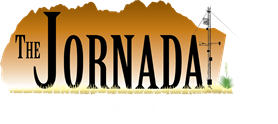| Abstract | At the opening of the new millennium, both range science and pastoral development find themselves in a state of flux. Recent decades have witnessed widespread criticism of pastoral development programs implemented in the latter half of the twentieth century (Agrawal 1998, Ferguson 1994, Hary et al. 1996). Meanwhile, ecological research has cast doubt on the Clementsian paradigm that informed range science and policy for most of the last century (Vesk and Westoby, 2001; Westoby, Walker and Noy-Meir, 1989). The need to reassess and reconfigure both the theory and practice of pastoral/range management is widely acknowledged (Mearns, 2002; Turner, 1998). Curiously, however, little attention has been paid to the historical origins of the range science-development nexus in the United States during the late nineteenth and early twentieth centuries from which emerged the model for much subsequent development work. As scientists, policy makers, and pastoralists work to find new models, a consideration of this history provides important perspective and lessons for the challenges ahead. |


